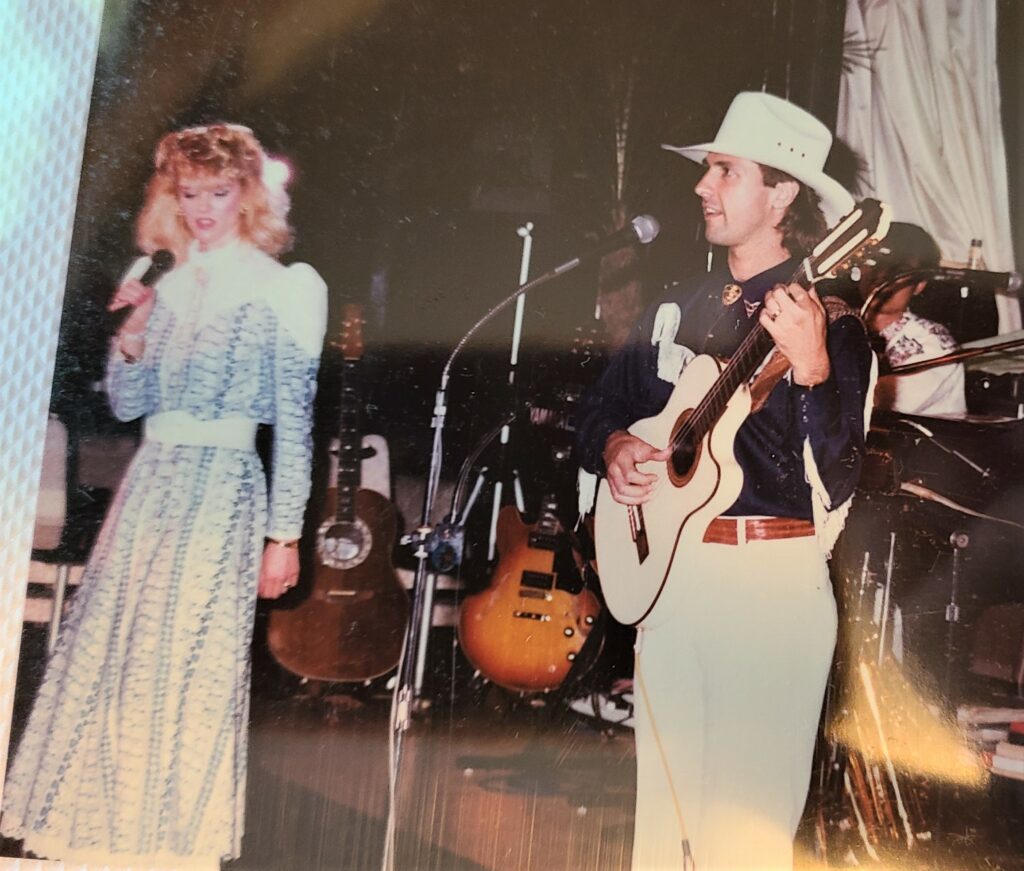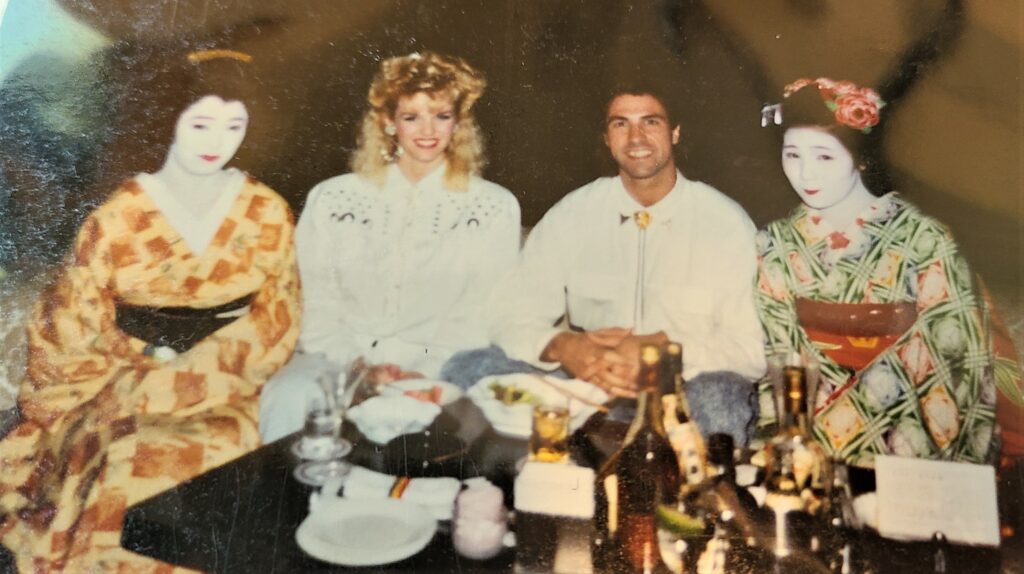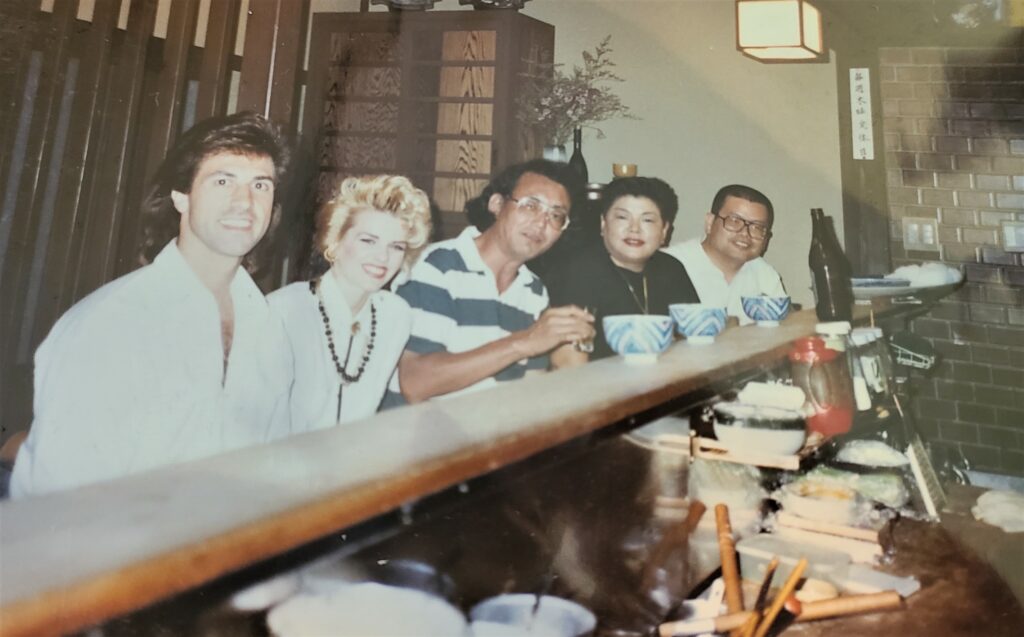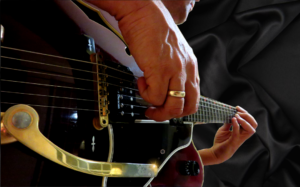
In the past few weeks and months, news outlets and social media have been abuzz with details of the Olympic Games taking place in Tokyo. Japan is thirteen hours ahead of us here on the east coast of the United States, and in many respects, it really does seem like a world away from what we’re accustomed to.
When I was in my twenties, I had the opportunity to play in Kyoto for a couple of months. This experience was truly unique – culturally, Japan couldn’t have been more different from the U.S. – yet, amazingly, I learned that the language of music is universal, and found that I was able to communicate musically – perfectly – with my Japanese band and build connections with the audience.
Recently, I took some time to reflect on my experiences in Japan. I hope you will enjoy reading through my reflections – this incredible opportunity created memories that will last for the rest of my life.
How did I end up in Japan, anyway?
Back in the early 1990s, we [me and my wife, Gwenn] had been working musicians in Las Vegas. One of our agents, Jaki Baskow, was well-connected with lots of people. She said that she knew a guy who owned a nightclub out in Japan, and asked if we would be interested in going there to perform. We talked about the logistics, and the next thing you know, we’re on the airplane and flying out to Japan!
We were based in Kyoto, and originally, we were only supposed to be out there for one month. However, the artist that was supposed to fly in and perform the month after ended up canceling. So, the nightclub owner asked if we would stay on, and we did – so we ended up staying for two months.
Kyoto itself was a very busy city. It was busier than Orlando is today. I remember remarking to the nightclub owner about just how big Kyoto was, but he laughed and said it was a little town in comparison to Tokyo.
We did go to Tokyo on one occasion, and he was correct. Tokyo is overwhelming. There are so many people there, and they have these underground shopping malls which go on for what seems miles. It was unlike anywhere I have ever been.


The importance of music as a universal language
Whilst we were in Japan, we played at the same nightclub for two months. The owner of the nightclub also owned an entertainment agency, and we played a couple of daytime shows at a few other venues that he owned.
There were some obvious differences between playing music in Japan compared with what I had been used to in the United States, but there were also some similarities.
Music really is a universal language. Even if you can’t communicate with words, music acts a bridge which you can use to communicate. I couldn’t speak Japanese. Gwenn couldn’t speak Japanese. Our backup band were all Japanese and couldn’t speak a word of English. Yet, despite the fact that there was this huge language barrier, because we were all educated musicians who could read and interpret music, we communicated perfectly. I gave them my music, and they gave me theirs; we learned it just like we were learning with someone in our hometown back in the States.

This is a very important point for budding musicians, particularly if you want to gig and really become a master of your craft. Most people – let’s say, 90 to 95 per cent of people – they listen to the radio and they hear music, but that’s where their musical journey ends.
However, if you aspire to being a successful musician, you have to be in the five or ten percent who truly understand music. A large part of that journey is understanding that music is a language, and once you understand that, you can communicate perfectly with other musicians – regardless of where you’re from or if you speak different languages. This is pivotal to understand if you want to be a professional musician.
Musical styles and the Japanese audience
We were hired specifically to play American songs – in particular, they wanted us to play country music. This was interesting, because when I worked in Vegas, I really didn’t play a lot of country music. I was playing soft rock, Adult Contemporary and Smooth Jazz, but very little country. It was interesting.
Most of our performances at the club would follow the same routine. The owner actually had a small orchestra who would play instrumental sets for a couple of hours before we took the stage. Then, we would be the main attraction for two to three hours. He had a house band who learned our music to back us up, and after we had finished, they would play right through into the or the early morning.
The audience at the club was comprised mainly of rich entrepreneurs. Money was really no object for these people. As one example, one gentleman was a world-famous kimono painter – he would sell kimonos for hundreds of thousands of dollars. Another owned a chain of gas stations. Their industries were varied, but they all shared one thing in common – they had money, and lots of it.
We played six days a week, and would come to learn some of the habits of our customers. For example, customers might come in once per week between Monday and Thursday, and then they would always be there on Friday and Saturday. They would be there three days a week, every week. What was really fascinating is that on Fridays, they would show with their girlfriends or geisha girls; on Saturdays, they would be there with their wives!
We were paid, and tipped, very well during our time in Japan. I’m not sure if it was customary, but every time a customer tipped us, it would work out to exactly $35, every single time. It was just another quirk of our time there.
Final thoughts
After two months in Japan, we started to miss home. To be honest, I think this is the case if you spend two months away from home anywhere. It was a long time to be away from friends and family.
With that said, playing in Japan was an amazing experience. We were treated so kindly by everyone there. I probably wouldn’t go back again for two straight months, but maybe a two or three-week stint, who knows? We had a great time, saw a different side of the world, and got to explore different things every day. I’ll always have those memories.
The most important takeaway from my experience in Japan that I can pass to budding guitarists is the importance of learning your craft and your musical language. Get educated, learn to read, write and interpret music. If you have a fundamental understanding of music, you can apply that to any situation. It doesn’t matter if you’re working with someone who doesn’t speak English; you’ll be unified by the language of music. A foundation of musical knowledge is integral to anyone who seriously aspires to be a successful musician.

